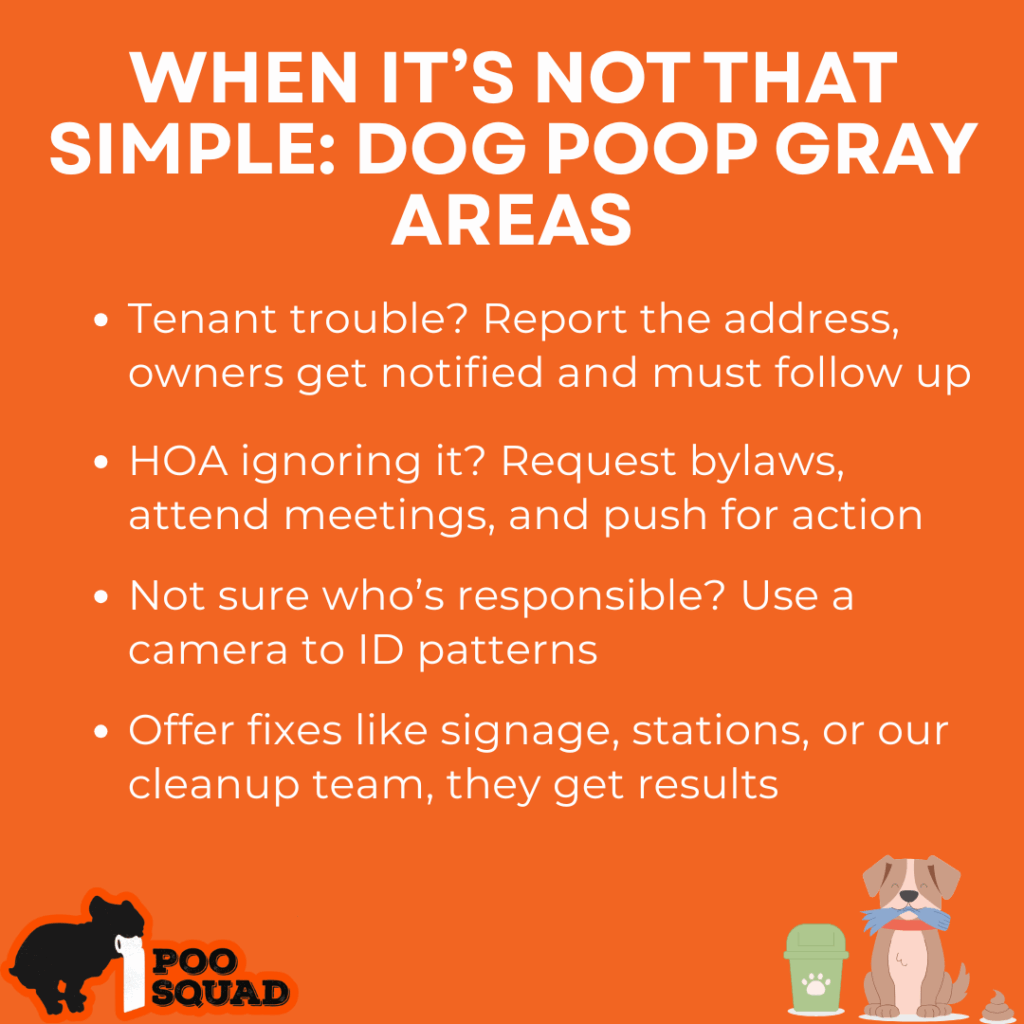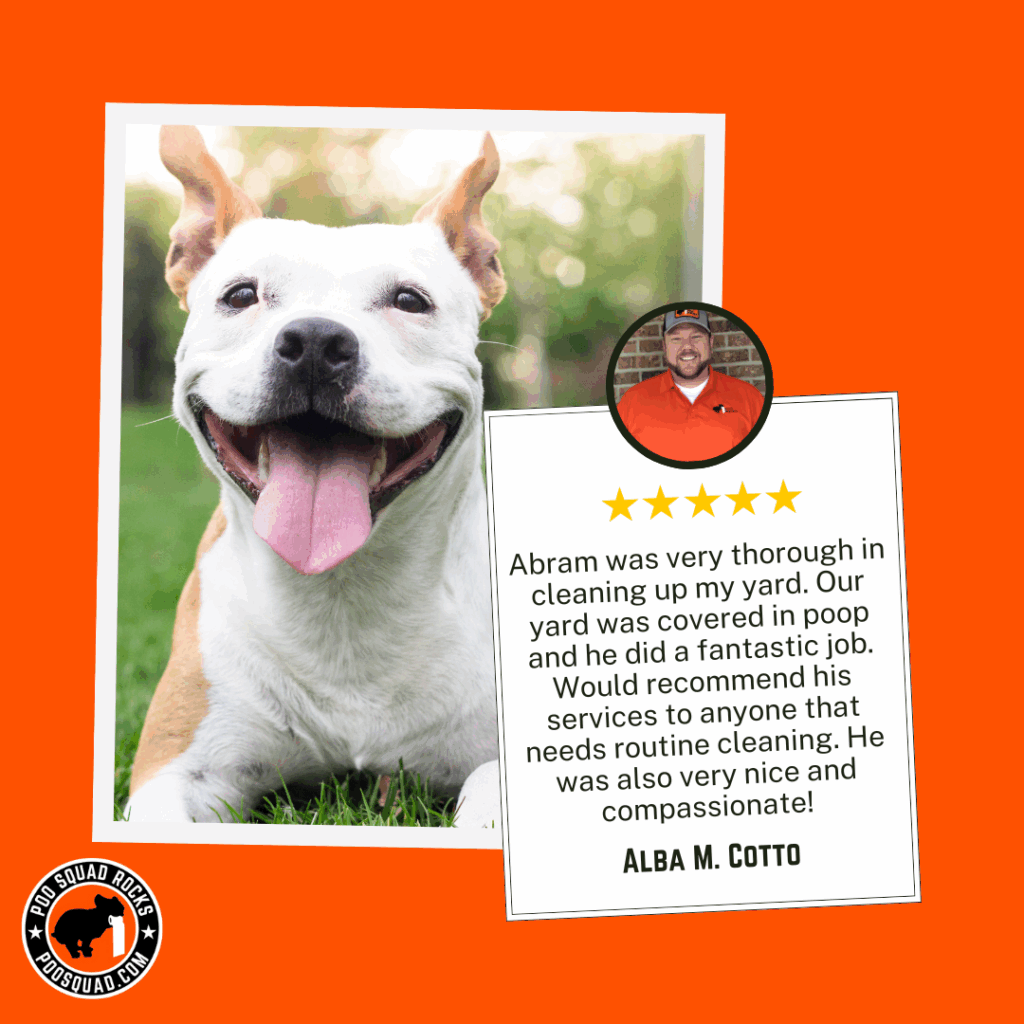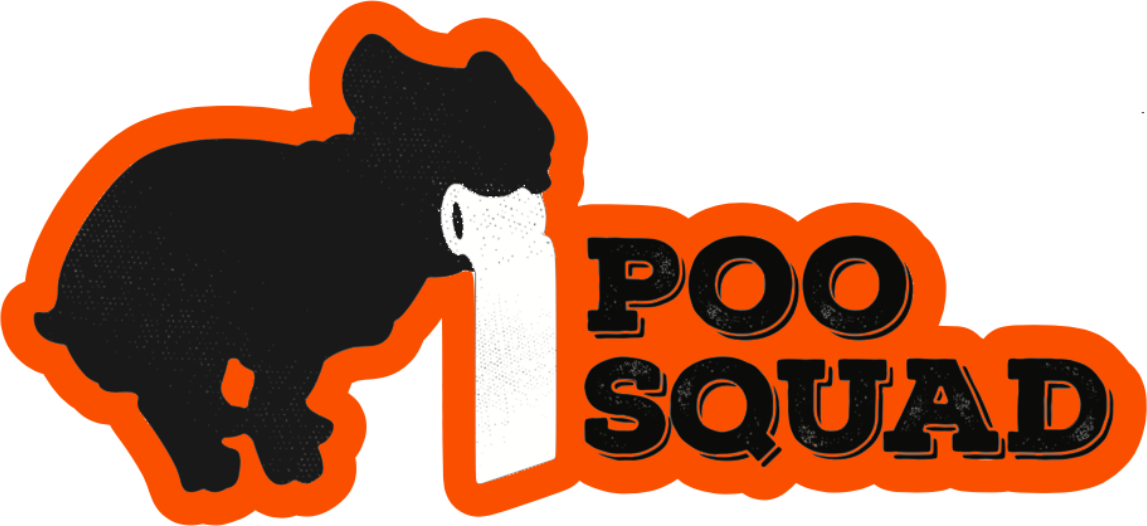Yes, you can report a neighbor for not picking up dog poop. Most cities allow complaints through 311, animal control, or HOAs. Document incidents with photos, note dates, and confirm local laws before filing. Fines, warnings, or community rules often apply.
Yes, you can report a neighbor for not picking up after their dog, and in many cities, it’s a legitimate public health complaint. But reporting it is not only about calling animal control. It requires the right documentation, awareness of local ordinances, and a strategy that avoids unnecessary neighborhood tension.
Dog poop left behind is not a small issue; it’s a sanitation risk that spreads bacteria, damages lawns, and triggers conflict. Whether it’s happening in your front yard, a shared courtyard, or the community sidewalk, you’re not powerless. There are clear steps you can take to handle it legally and effectively, without escalating into a neighborhood feud.
How to document repeat violations, where to file a complaint, how HOAs handle pet waste enforcement, and what to do when it’s not as simple as one bad neighbor. You’ll also learn when it makes sense to escalate, how professional cleanup services can shift the standard, and why handling it calmly matters more than ever.
Step-by-Step: How to Report Dog Poop Violations
If you’re ready to do something about the neighbor who treats your lawn like a public restroom, here’s exactly how to take action. This is not about revenge, it’s about protecting your yard, your health, and your sanity.
These steps apply whether you live in a house, an apartment, or an HOA-managed community.

1. Document the Offense Thoroughly
Start by gathering proof. Without it, you’re only pointing fingers, and that rarely goes well.
- Snap a photo or video of the dog doing its business and the aftermath. Make sure the footage clearly shows the location and the lack of pickup.
- Log the date, time, and address for each incident. A pattern of behavior is more powerful than a one-time complaint.
- Use your phone or install a motion-activated camera. Even a budget-friendly model can help you ID the dog (or owner) without confrontation.
Need a longer-term solution? Our team uses photo documentation to confirm gate closures after every service. That same accountability mindset is what neighbors need to adopt, but until then, document everything.
2. Check Local Ordinances
Every city has its own rules, but most treat uncollected dog poop as a public health or nuisance violation.
- Search your city name plus “dog poop law,” or head to your municipality’s website. Some have dedicated pet waste ordinances with fine structures spelled out.
- Look for keywords like “pet waste disposal,” “animal control,” or “public sanitation.”
- Can’t find the info? Your city clerk’s office or public works department can usually point you in the right direction.
And remember, uncollected dog poop is not only gross, it’s hazardous. Our yard sanitation services exist for a reason: dog waste spreads bacteria and even parasites, especially when left to bake in the sun or run off into nearby drains.
3. File a Complaint
Now that you’ve got your evidence and you know the law, it’s time to speak up, officially.
- If you’re in a city or suburb, call 311 or use your city’s reporting app. Some cities even have specific categories for dog waste or leash law violations.
- If you’re in a rural area, reach out to animal control, your county health department, or local law enforcement. Smaller towns often have one officer handling pet complaints, so be prepared to follow up.
- Be sure to include the offender’s address, dates of the incidents, and your photo/video proof. The more organized you are, the more seriously they’ll take your report.
4. Contact the HOA or Property Manager
If your neighbor’s dog is treating your shared apartment lawn like a litter box, you’ll want to loop in your HOA or landlord next.
- Send an email with timestamps, photos, and a clear description of the problem.
- Ask them to follow up with the pet owner and provide a response deadline. A simple “we’re looking into it” won’t fix your yard.
- Bonus tip: Many HOAs have pet rules built into their bylaws, and they can issue warnings or fines more quickly than city offices can.
Whether you own a home or rent, living in a pet-friendly space shouldn’t mean tolerating lazy pet owners. That’s why we’ve helped entire HOAs and apartment complexes maintain cleaner, safer communities through our commercial poop pickup service, because sometimes, it takes a squad.
What If It’s Not That Simple? Other Situations
Even when you follow the rules, things aren’t always straightforward. What if you don’t know whose dog it is?
What if your HOA shrugs it off?
Or worse, what if it’s not even your neighbor’s dog, but their tenant’s?
Let’s unpack the gray areas that most city guides never address.

It’s Not My Neighbor, It’s Their Tenant
This one’s common, especially in rental-heavy neighborhoods. You know the house, but it’s the renter, not the homeowner, who’s letting their dog treat your yard like a latrine.
Here’s how to handle it:
- Still, file a report using the address you know. City agencies typically contact the property owner on file, who then has to deal with their tenant.
- You can also look up the owner via your county’s property records, then send them a polite heads-up. They might not even know what’s going on.
This situation’s a great example of why many landlords and property managers turn to our commercial service; they’re tired of complaints and want to offer pet amenities without the mess.
The HOA Won’t Do Anything
Some HOAs are on top of it. Others… not so much.
If your HOA is dragging its feet:
- Request to see the enforcement section of the community bylaws. Most have clear policies on pet waste.
- Attend a board meeting (yes, really). Bring your documentation, and push for a response on record.
- If needed, escalate to city or county officials, especially if the issue affects public health.
Offer solutions, not only complaints. Suggest adding dog waste stations or even hiring a local poop removal company. Sometimes, a proactive resident can trigger real change.
I’m Not Even Sure Which Neighbor It Is
Nothing’s more frustrating than knowing a dog is doing damage and having no idea who it belongs to.
Here’s how to figure it out without drama:
- Install a low-profile camera facing the area of concern. Make sure it captures the time and angle needed to ID the dog and owner.
- Keep notes. Patterns often emerge, same time of day, same direction, same leash.
- Avoid confrontation unless you’re sure. Guessing wrong can cause unnecessary tension on your block.
And if you’re looking for a hands-off solution, we’ve got that too. Our residential scooping service includes full cleanup, health monitoring, and reminders so that your yard stays clean, even if your neighbors don’t do their part.
Can I Confront My Neighbor About Dog Poop Without Causing Drama?
Yes, but tread carefully. The goal is to protect your space without blowing up the block. Not every neighbor is intentionally disrespectful; some are only clueless, overwhelmed, or too distracted to realize what their dog is doing.
This section will help you open that conversation without becoming the next “crazy neighbor” in the group chat.
Start Soft, Stay Cool
If you’ve confirmed whose dog it is, consider a calm and private conversation. Knock on the door or send a note that says something like:
Hey, I’ve noticed some dog waste being left near my lawn. I wasn’t sure if you were aware, but it’s been happening pretty regularly. Would you mind keeping an eye out? Thanks so much.”
Tone matters. You’re not accusing them of being a bad person, only reminding them of their responsibility.
If that doesn’t work, then yes, it’s time to escalate to your HOA, property manager, or the city. But at least you can say you tried.
Use Gentle Signage
Sometimes, you don’t need a conversation; you only need a little visibility. A polite sign in your yard or walkway can send a clear message:
- “Please pick up after your dog.”
- “Your dog can’t read. But you can.”
You’d be surprised how often this works. People behave better when they know they’re being noticed.
If you live in a community that struggles with recurring problems, consider suggesting community-level solutions like adding pet waste stations or scheduling weekly cleanups. We’ve helped entire neighborhoods reclaim their yards with simple, cost-effective setups that take the burden off individuals.
Don’t Retaliate, Ever
We get it. You’re tempted to scoop it up and leave it on their porch. But that’s how you end up on the 10 o’clock news, or worse, facing harassment charges.
Focus on real solutions, not emotional reactions. Reporting. Documentation. Professional services.
If you want to make a point without the drama, consider turning your yard into a gold standard: poop-free, sanitized, and smelling fresh thanks to our pet-safe deodorizing service. Trust us, nothing shames a lazy neighbor faster than your yard looking like a park and theirs looking like a petting zoo.
What Are the Health and Environmental Risks of Dog Poop?
Dog poop is not only a neighborhood nuisance, it’s a genuine health hazard. Each pile left behind not only messes up your lawn, but it also invites bacteria, parasites, and even environmental contamination into your space. Ignoring it can affect your family, your pets, and your property value more than most people realize.

It’s Not Fertilizer, It’s Toxic Waste
Some folks still believe dog poop is “natural fertilizer,” but it’s not; it’s acidic, bacteria-ridden, and terrible for your lawn. Here’s why it harms your grass. Unlike cow manure, it’s highly acidic, protein-rich, and loaded with pathogens. Every gram can carry up to 23 million coliform bacteria, including E. coli and Salmonella.
And no, mowing over it doesn’t help; it only spreads microscopic particles across your yard, your patio, and sometimes, into your home.
Runoff = Water Pollution
When it rains, uncollected poop doesn’t disappear; it washes into storm drains. That waste ends up in rivers, lakes, and groundwater, triggering algae blooms, oxygen depletion, and water pollution.
In some areas, local water authorities track dog waste as a major contributor to stormwater contamination. That’s why many cities enforce poop pickup, not only for courtesy, but for public health.
Attracts Rodents and Insects
Leftover dog waste is a feast for flies, roaches, and rats. The more that piles up, the more those unwanted guests come sniffing around your home.
And if you’ve ever had to explain to your kids why there are maggots in the backyard? Yeah, there’s a better way.
Puts Other Pets (and People) at Risk
Parvovirus, Giardia, and roundworms can all be transmitted through dog feces. These pathogens don’t just pose risks to pets; they can also affect humans. Here’s what you need to know about dog poop and human health risks. This creates a ripple effect of exposure across parks, sidewalks, shared yards, and yes, your living room floor.
We’ve even had customers schedule residential cleanup and sanitation services after noticing recurring illness in their pets, only to realize the neighbor’s backyard habits were part of the problem.
Special Cases: Apartments, Shared Yards, and Events
Not all poop problems happen in single-family homes. If you’re dealing with shared spaces, like apartment courtyards, duplex lawns, or dog-friendly events, the frustration can multiply fast. You’re sharing the space, but not everyone shares the responsibility. Here’s how to handle the mess when it’s not entirely yours to fix.
Dog Poop in Shared Apartment Spaces
Apartments and condos create a unique challenge: one lawn, dozens of dogs, and no clear accountability.
If you’ve got repeat offenders:
- Bring it up with your property manager or leasing office. Most buildings have pet clauses in their lease agreements, and they can issue warnings or fines.
- Request that the complex install waste stations with bags and signage near high-traffic areas.
- If you want to avoid being that neighbor, suggest a solution: we’ve partnered with multi-family communities to provide scheduled commercial pickups that take the pressure off staff and residents.
Trust us, residents complain less when their dog park doesn’t smell like a porta-potty.
Hosting a Dog-Friendly Event? Plan for the Aftermath
Planning an adoption event, bark-in-the-park night, or dog birthday party? You’ll want to think beyond decorations and goodie bags.
- Provide trash cans, waste bags, and clear signage.
- Designate someone to walk the area every 30–60 minutes.
- Or skip the stress and bring in the pros. Our event poop cleanup crew is fast, discreet, and makes sure your venue looks better after we leave than it did before.
Because nothing kills a vibe faster than stepping in it mid-party.
Reporting is not the Only Solution: Prevention Tactics That Work
Filing a report can help, but it’s not the only way to protect your property. Sometimes the best offense is a smarter defense. These prevention strategies work whether you live in a house, condo, or HOA community, and they can stop the problem before it even starts.
Install a Waste Bag Station (Yes, Even at Home)
If you’ve got a front lawn that sees a lot of traffic, consider placing a small dog waste station near the edge of your property. It sends a message:
“This is not a free-for-all, but we’ve made it easy for you to do the right thing.”
HOAs and apartment communities can level this up with branded bag dispensers and scheduled commercial waste removal services that keep things tidy long after move-in day.
Use Strategic Signage
Forget passive-aggressive posters. Polite, well-placed signs work better. Humor can help, too:
- “There’s no poop fairy. Please pick up.”
- “Your dog can’t read. You can.”
People are far more likely to comply when the message feels friendly instead of accusatory.
Lead by Example
It sounds basic, but picking up after your dog consistently and visibly sets a tone in the neighborhood. When one yard looks clean and smells fresh, it makes others look worse by comparison.
Want to take it a step further? Our customers often use pet-safe deodorizing services to keep their yard from smelling like, well, a dog toilet. It’s subtle, but effective.
Organize a Community Cleanup Day
If dog waste has become a neighborhood-wide issue, rally a few neighbors for a weekend cleanup. Provide gloves, trash bags, and cold drinks. You’d be surprised how much goodwill (and awareness) a one-hour event can create.
Bonus: After the cleanup, introduce a plan for ongoing maintenance, whether through the HOA, property manager, or a recurring professional service.
Can Poo Pickup Services Help With Neighbor Problems?

Sometimes the best way to get neighbors to step up… is to quietly raise the bar. When your yard is spotless, smells fresh, and doesn’t attract flies or complaints, it sends a message: This is what responsible pet ownership looks like. And it’s not only about appearances, it’s about peace of mind.
Tired of Cleaning Up What’s Not Yours?
You don’t need to play detective every week only to enjoy your backyard. Professional scoopers handle everything from weekly visits to one-time deep cleans. That means no more stepping in it, arguing with neighbors, or dodging poop while mowing the lawn.
Want to Stop the Smell?
Deodorizing services don’t only mask odors, they target and eliminate the bacteria that cause them. Safe for pets and families, these treatments are especially helpful for small yards, heavy-traffic areas, or summer heat when the smell gets worse.
Live in a Community Setting?
Whether it’s an apartment, HOA, or rental property, group waste issues require group solutions. That’s where neighborhood-wide cleanup plans come in. Some communities even include weekly scooping and pet waste station maintenance as part of their amenities, because when everyone shares the space, everyone benefits from keeping it clean.
Hosting a Dog-Friendly Event?
If you’re planning a party, adoption fair, or any event involving four-legged guests, poop patrol is one less thing you should have to worry about. Event cleanup crews handle it all discreetly so your guests stay focused on the fun, not the funk.
Don’t Let One Bad Neighbor Ruin Your Lawn
It’s not petty to care about poop. It’s about respect for your home, your time, and your health. Whether it’s one dog or five, no one should be expected to put up with messes they didn’t sign up for.
You don’t have to suffer in silence. You can document it. You can report it. You can even stop it without saying a word, by setting a higher standard that your neighbors can’t ignore.
From individual homeowners to entire communities, clean yards don’t look better only, they feel better. And if the only thing standing between you and a poop-free lawn is someone else’s laziness, now you’ve got the tools to do something about it.
Whether you go the DIY route or call in backup, you’ve got options. Take back your yard. Protect your space. And remind your neighborhood that being a good dog owner starts with picking up the crap, literally.
